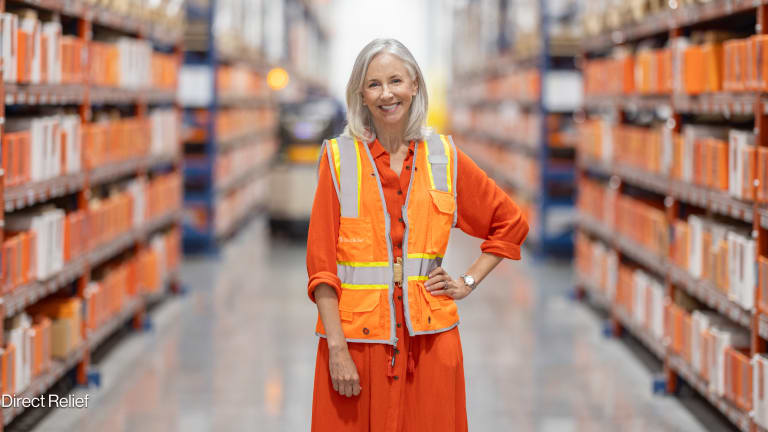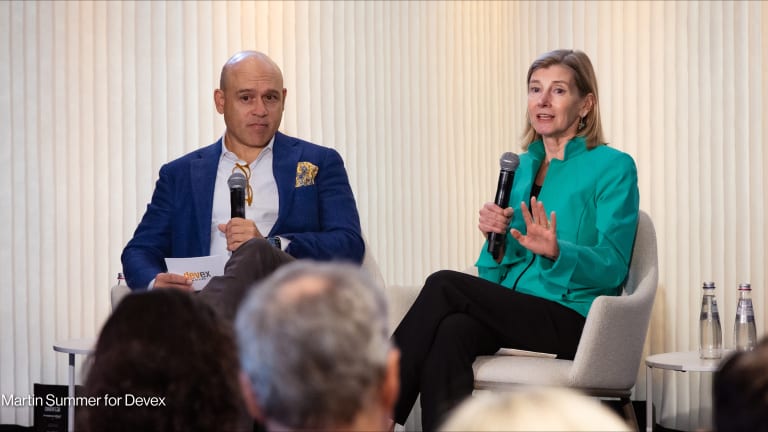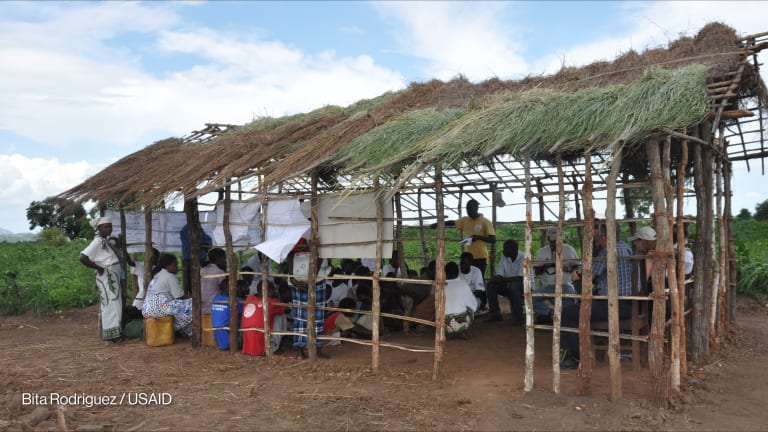
Simon Hacker has been working in Damascus for a year now as logistics supervisor for the World Food Program in Syria.
He must overcome on a daily basis the logistical nightmare of warehouses getting closed down, hijacked trucks, abducted drivers and struggling to get enough funds to buy food months before it is actually needed so there is always plenty in stock to feed probably up to 4 million people by October . The challenge, Hacker explained, is “how to deal with rapidly changing circumstances” and adapt your strategies on the ground.
In an interview with Devex, the logistics expert admitted that the longer the fighting continues, the more people WFP will have to feed with never enough money from donors, even if the U.N. agency is doing its best to ramp up its operations in the country.
Here are a few excerpts from our conversation with Hacker:
What challenges are you facing to address food insecurity in the current crisis?
[The number] of people in need has increased over the last year to the point [that] we will be targeting four million people [by October]. Of course, the longer the conflict continues, the less people [will be] able to use their own coping mechanisms to deal with the shocks … They run out of savings, any kind of food stuffs that they have. Many people have been displaced multiple times.
We do fear the longer that the situation continues at this level, there will be a corresponding decrease in the humanitarian situation, which ultimately will mean that more people will need assistance in different ways. For the World Food Program that means that we’ll need to feed more people.
And the challenges for delivering food?
Essentially we don’t know what can happen in terms of the fighting and conflict. That means for us, for example, [that] a road that connects one of our main warehouse can close [because of] the fighting and you can’t access the food anymore. We cannot use [just] one warehouse; we should have multiple warehouses all over the country so the operations can cope with the different kinds of shocks.
We have plenty of stories of drivers [that] get stopped, hijacked, sometimes the cargo get looted or worse, there are stories of divers who were taken hostages and very badly injured during their time in captivity. In many cases, when a driver leaves Damascus ha has to navigate maybe up to sixteen different check points, all under control of a different entity, [and also] the population is constantly moving, [so you have] to change the operation and move the food to a different destination.
How do you address this situation that changes so rapidly in terms of logistics?
The system has to be resilient to the shocks. … Always having plenty [of food] is very important. At the beginning of the year, one of our main warehouses in Damascus actually came under siege; it was shout multiple times, not because the warehouse [itself] was a target, but because the warehouse was rather in the middle of the conflict. Damascus is essentially one of the last safe places in the country, [but it can] become a hotspot in 24 hours. … It’s just trying to be incredibly adaptive to a situation that continues to change: As long as the conflict continues no one can predict what’s going to happen, [so] we always [must] have a plan B. [And] this is also the case when we are importing food.
WFP is ramping up its operation capacity to feed 4 million people by October. How are you doing that? What are your the plans?
It starts by looking at where we are going to get food supply … and then we are looking at things like how to increase the capacity in the ports that we are using [as well as considering] new ports, more warehouses within the country.
Our partners are doing all the distribution on our behalf, so [we have] to work with them [on] training and capacity building to make sure that they can support the increase. Logistics is one component, but then you have to manage the distribution and so you have to look at the entire supply chain from A to Z, to ensure they [are able to] increase their capacity at all levels.
You work with many different partners, local NGOs, what are the challenges of working with local partners and how are you addressing these difficulties?
Some of the difficulties are that traditionally Syria is not used to having such a large food operation. In a country like Syria, [local organizations] are not used to [doing] food distribution, they [have experience] in other activities. At the very basic level, it means bringing them to Damascus and teaching them for example about things like how to run a warehouse, how to manage the commodities.
How are you addressing the security issues? What is your strategy to keep your staff safe?
We have an incredible group of security colleagues who are dedicated to doing things like that. Sometimes you have to move an office from one location to another, [but] it’s also [about] awareness.
There’s no question that when you are working in places like Syria there are risks, but all the same … you have to balance the two things: The need of the beneficiaries, which is what our job is — which is why we exist, that is, to deliver food to the people who are most in need — [and] making sure that our staff is safe.
What you can do, for example, is [get help from] our private sector partners, for example the transportation companies, to do a lot of the logistics work for you, so you can find drivers from the rural areas that know them well [in order to] gain more access to the field.
You are going to buy additional food. What are difficulties in the supply and what are your needs?
We buy from around the world. First we look at cost and then we look at time, how long it takes to get the food to Syria. Now, the biggest challenge is the funding because we need to receive funding between two and three months in advance of when the food is actually needed to ensure it [is able to enter] the country. If we don’t, it becomes very, very difficult for us to meet the needs to the beneficiaries.
So number one, biggest challenge is always, in an operation like this, the funding. After we get the funding, the kind of food we provide is the very basic food basket of seven items … so that people don’t need to cook, [which] is very important for people who are on the move.
Are you buying for specific countries, from local markets?
In a situation like this we try not to do any local procurement because we really want to avoid disturbing the local markets, so we buy some food in Turkey, recently we got rice in Egypt and Vietnam, sugar from Europe. It varies depending on the commodities and on the world prices at the time; we have an entire unit in Rome which is dedicated to find the best value-for-money always.
What does it mean for an international operator to work in Syria right now?
Imagine this month we are trying to feed 3 million people, which 200,000 per day. If you lose one day, it’s 100,000 people [starving] … Any given day, anything can happen — warehouses getting closed, the fighting can shift, people can move. … The pressures is huge [but we cannot forget] why we are here and what we are doing. The conflict affects everyone in different ways, [so] we have to be very sensitive and patient with everyone.
Join the Devex communityand gain access to more in-depth analysis, breaking news and business advice — and a host of other services — on international development, humanitarian aid and global health.








